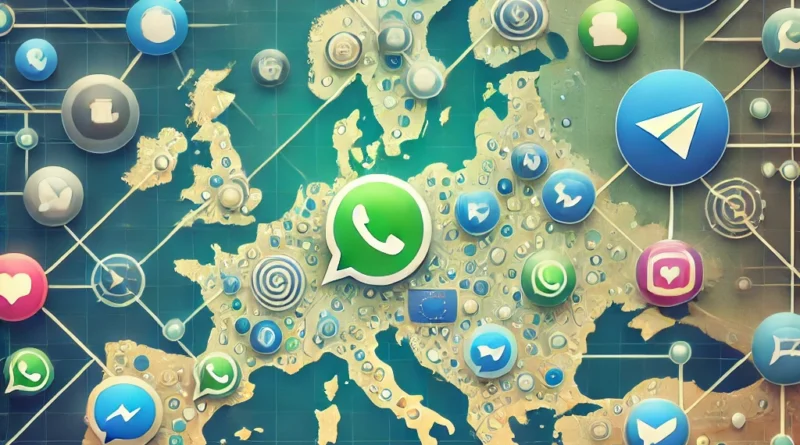Meta’s Plan to Enhance Messaging Interoperability for WhatsApp and Messenger in the EU
The European Union’s new Digital Markets Act (DMA) is paving the road for the digital communication revolution of the future. With the new rules of the DMA, Meta announced that WhatsApp and Messenger will be allowed to talk with other messaging apps. This strategic move will change how messaging apps work in the European Union and create a signal across the world as to how digital communication works.
Understanding the Context: What is the Digital Markets Act (DMA)?
The European Union has its new legislation, the Digital Markets Act, which looks to step into the operations of large tech companies and dubbed “gatekeepers” to ensure fair competition and innovation. Interoperability for large user-based messaging apps is one significant element of the DMA; thus, it will be mandatory that people who use different messaging platforms be able to communicate with each other without hassle, tearing down the walls that have stood out for years.
Meta’s WhatsApp and Messenger Interoperability Strategy
Meta, with its acquisition of WhatsApp and Messenger, has stated it will comply with the DMA demands by making its messaging apps interoperable with other messaging apps. This means that a WhatsApp user would be able to shoot a message to a recipient on another messaging app, without needing to open the other app.
Meta’s approach encompasses several key points:
- Technical Interoperability and Standards: The firm will need a technical architecture strong enough to create end-to-end encryption and privacy standards across the platforms. This most likely would mean the adoption of industrial messaging protocols for interoperability.
- User Privacy and Security: Since WhatsApp emphasizes end-to-end encryption, it becomes challenging for Meta to maintain the same level of security while accessing other services. The company has promised its users not to compromise on privacy and is ensuring that the encryption be held intact regardless of the application from where the messages are being sent or received.
- Phased In and Test Roll-out : Interoperability is likely to be rolled out in phases starting from text messaging and then expanding through phased rollouts to such sophisticated functions as media sharing, group chats, voice/video calls. Thorough Testing would be more likely on the suspected security vulnerabilities of interoperability
Impact on Users and Other Messaging Apps
This might be a game changer for users. They will no longer have to juggle several messaging applications to keep in touch with various friends and family on various platforms. But instead, they would use their favourite app while effortlessly communicating with others. It may lead towards a more streamlined user experience as that eliminates friction associated with maintaining multiple accounts.
It’s both a blessing and a curse to other messaging services. The smaller services, which already tap into the Meta user base, will have to invest in developing interoperability-enabling features if they are to stay in line with DMA.
It is going to affect companies like Telegram, Signal, and Apple’s iMessage, due to the far-reaching technical alterations it brings.
What does it mean for the future of messaging?
As a move toward interoperability, this fits within the larger “walled garden” trend unfolding in digital communication. This may prompt other tech leaders to open up, soon spreading greater openness and interconnection throughout the digital world. While the initiative is currently limited to the EU, its success in the region may pave the way for similar regulations and implementations around the world.
In addition, interoperability may lead to innovation as it levels the playing field for smaller firms. For instance, it may create new business models since firms will look into how to monetize cross-platform messaging services with users’ privacy and experience retained.
Messaging Interoperability on Meta and its Consequences on Business and Marketing Strategy
When Meta’s willingness to respect the DMA demonstrates a cross-platform messaging capability for WhatsApp and Messenger, it is interesting news for the tech world. It means an open, user-friendly, and competitive ecosystem for the digital space. As this has happened for the first time in the EU region, other regions might take on a similar lead, changing the way people communicate digitally.
Conclusion
Meta’s new move is in complete sync with enabling interoperability between WhatsApp, Messenger, and other messaging applications. It is a new chapter for digital communication and precedents set by the policy will change the entire messaging space. As it unfolds it would be interesting to note if it translates into better privacy for the users, increased competition within the messaging application, or any other critical aspect for users going forward.
Stay tuned for how Meta navigates these changes, as the future of messaging unfolds in response to these unprecedented regulatory requirements.
